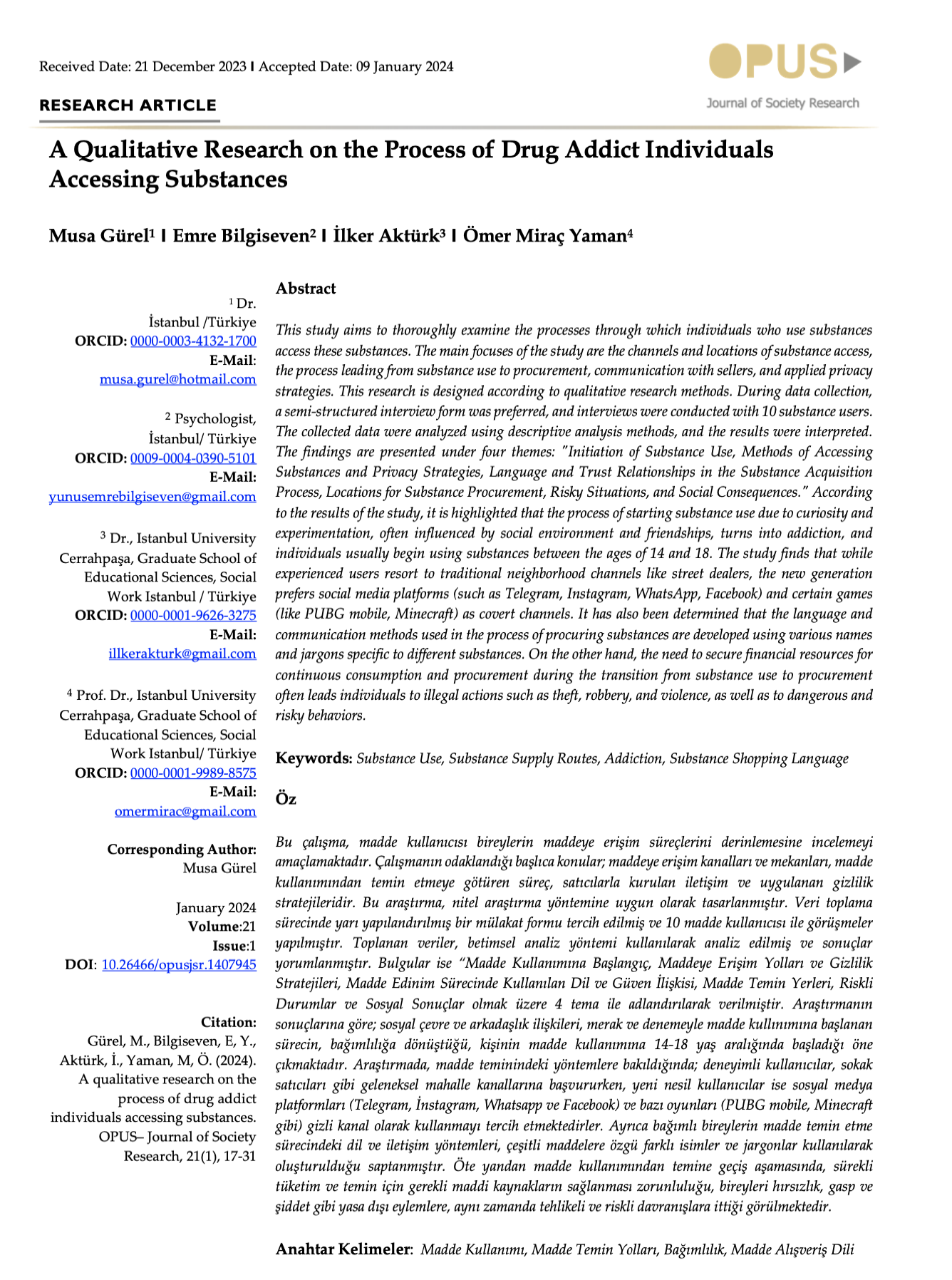This study aims to thoroughly examine the processes through which individuals who use substances access these substances. The main focuses of the study are the channels and locations of substance access, the process leading from substance use to procurement, communication with sellers, and applied privacy strategies. This research is designed according to qualitative research methods. During data collection, a semi-structured interview form was preferred, and interviews were conducted with 10 substance users. The collected data were analyzed using descriptive analysis methods, and the results were interpreted. The findings are presented under four themes: "Initiation of Substance Use, Methods of Accessing Substances and Privacy Strategies, Language and Trust Relationships in the Substance Acquisition Process, Locations for Substance Procurement, Risky Situations, and Social Consequences." According to the results of the study, it is highlighted that the process of starting substance use due to curiosity and experimentation, often influenced by social environment and friendships, turns into addiction, and individuals usually begin using substances between the ages of 14 and 18. The study finds that while experienced users resort to traditional neighborhood channels like street dealers, the new generation prefers social media platforms (such as Telegram, Instagram, WhatsApp, Facebook) and certain games (like PUBG mobile, Minecraft) as covert channels. It has also been determined that the language and communication methods used in the process of procuring substances are developed using various names and jargons specific to different substances. On the other hand, the need to secure financial resources for continuous consumption and procurement during the transition from substance use to procurement often leads individuals to illegal actions such as theft, robbery, and violence, as well as to dangerous and risky behaviors.
Diğer Makaleler
Prof. Dr. Ömer Miraç Yaman
İstanbul Üniversitesi Sağlık Bilimleri Fakültesi Sosyal Hizmet Bölümü

